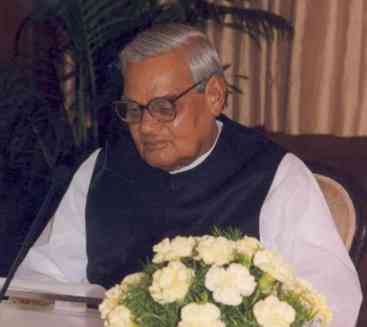Why Is Barack Obama Silent on Kashmir Issue?

Although Obama has been maintaining a stony silence on the Kashmir issue, the United Nations (UN) has expressed its desire to intervene.
By Rakesh Raman
In a fresh diplomatic attack on India, Kashmiris living in the United States have questioned President Barack Obama’s position on the territorial dispute in Kashmir between India and Pakistan.
The new offensive has come just after a few days of Pakistan’s decision to push the Kashmir issue aggressively in the international arena.
Last week, top Pakistani diplomats—Jalil Abbas Jilani and Dr. Maleeha Lodhi—had decided to mobilize support of the international community in Pakistan’s favour, although India maintains that Kashmir is a bilateral issue between the two countries.
Earlier, Pakistan Prime Minister Nawaz Sharif had announced to send 22 parliamentarians as special envoys in different parts of the world to highlight the Kashmir issue.
Meanwhile, a government-run news agency Associated Press of Pakistan (APP) reported Thursday that Kashmiris in the U.S. have expressed their disappointment over the silence of the Obama administration on the “ongoing brutalities in the Indian-held Kashmir.”
Role of the United Nations
According to APP, Dr. Ghulam Nabi Fai, Secretary General of the U.S.-based group World Kashmir Awareness, said in a statement that it is quite unfortunate that the Obama administration and the United Nations (UN) both have chosen to adopt India’s view that this is simply a bilateral issue.
Although Obama has been maintaining a stony silence on the Kashmir issue, the UN has expressed its desire to intervene. In a letter written to Pakistan’s Prime Minister Nawaz Sharif, the UN Secretary-General Ban Ki-moon has appreciated the commitment of Pakistan to a peaceful resolution of Kashmir for the sake of regional peace and security.
He also deplored the killings in Kashmir and offered to provide his mediation to facilitate a dialogue between India and Pakistan if both the sides invited him to do so. This, the UN Secretary-General said, is required to “achieve a negotiated settlement.”
Moreover, the UN High Commissioner for Human Rights Zeid Ra’ad Al Hussein has urged India and Pakistan to grant independent observers access to Kashmir.
Since the latest outbreak of violence in early July, Zeid has been engaging with both Indian and Pakistani authorities to seek access to the troubled region, but the UN human rights team has not been allowed to enter Kashmir.
Trouble in Kashmir
Kashmir has been facing a series of violent incidents since the killing of a 22-year-old rebel leader Burhan Wani by the Indian security forces on July 8 in an encounter which many believe was avoidable.
Nearly 80 people have died and thousands injured in the conflicts between the supporters of Burhan Wani and the Indian security forces in Kashmir, which is a disputed territory between India, Pakistan, and China.
Although Burhan Wani was branded as a terrorist by the Indian rulers, he was a freedom fighter for the tens of thousands of local Kashmiris. They rallied behind Burhan Wani to face the excesses of security forces who have been given a free hand by the Indian government to deal with all those in Kashmir who demand freedom.
Kashmir has always been a conflict area between India and Pakistan since 1947 when both these countries got freedom from the British rule. In order to stake their claims over Kashmir, India and Pakistan have fought two bloody wars in 1965 and 1971, besides incessant skirmishes between the rival armies.
On August 30, according to APP, non-resident Kashmiris submitted a letter to the U.S. Secretary of State John Kerry in which they expressed their disappointment over the U.S. silence on the atrocities in Kashmir.
No Solution
As the things stand today, the Indian government does not seem to have any solution to deal with the trouble in Kashmir, which is under curfew for the past about two months.
Although the ruling BJP government headed by Prime Minister Narendra Modi has decided to send an all-party team to Kashmir on Sunday, it is largely believed that it will turn out to be a futile exercise because the team members are planning to tackle the issue in traditional ways that failed in the past.
India’s Home Minister Rajnath Singh will lead the all-party delegation comprising 28 parliamentarians and senior government officials who will meet different stakeholders in Kashmir in an attempt to bring peace to the valley.
However, the chattering classes believe that the Indian politicians and bureaucrats are trying to cure a disease that they have not yet diagnosed. For example, the people of Kashmir want freedom from the Indian rule in the region, but the Indian regime wants them to play games.
On Friday, Modi announced a Rs. 200 crore package to engage the youth of Jammu & Kashmir (J&K) in sports. Earlier, Modi asked the protesting youth of Kashmir to hold laptops instead of stones in their hands that they use to hit the security forces.
Most observers are shocked at Modi’s understanding of the Kashmir issue. On the one hand, even the local teenagers are being blinded by the pellet guns that Indian security forces use on them. But on the other hand, Modi is showing his naivety by asking them to use laptops.
It is a general feeling that Modi is deliberately trying to complicate the whole Kashmir issue to divert attention of Indians who are reeling under a complete socio-economic chaos in the country. Earlier this week, an Indian political leader Mayawati went to the extent of saying that Narendra Modi may trigger a war with Pakistan to hide his failures.
As Kashmiris in Kashmir and abroad are worried over the disturbance in Kashmir, they expect the U.S. to break its silence.
“This latest situation has been met with inexplicable silence by the United States. This has given a sense of total impunity to India to exercise the use of unprecedented force on unarmed Kashmiri civilians,” Kashmiris wrote in their letter to Kerry.






